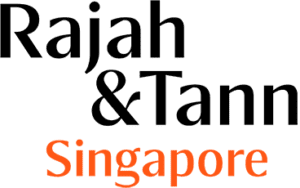Executive Summary
In order to strengthen the investor recourse regime in alleged market misconduct cases, the Monetary Authority of Singapore (“MAS“) issued the “Consultation Paper on Measures to Enhance Investor Recourse Avenues in Market Misconduct Cases” on 24 October 2025. MAS proposes to enhance the investor recourse regime in three key areas below:
- Facilitating self-organisation;
- Providing access to funding; and
- Reducing legal barriers to civil action.
MAS is also considering the implementation of suitable safeguards to prevent frivolous legal actions from placing unnecessary strain on the market. The aims of the proposed reforms are to complement public enforcement and boost investor confidence in Singapore’s capital markets. This Update provides a summary of the key reforms. The consultation will end on 31 December 2025.
Existing Legal Avenues
Under Part 12 of the Securities and Futures Act 2001 (“SFA“), there are two ways for investors to seek compensation for losses arising from market misconduct:
- Under section 234 of the SFA, investors may bring a private action in Court for compensation (“independent action“); and
- Under section 236 of the SFA (“piggyback provision“), investors may apply to Court for compensation after the offender is convicted or a civil penalty order is made against him (“piggyback action“).
Key Proposed Enhancements
- Facilitate Self-Organisation
Under the current legal framework for collective actions when multiple investors suffer losses as a result of market misconduct, investors may bring their own action with one or more of their own acting as a lead claimant. However, investors face two key challenges. First, difficulties in self-organisation because investors may not know one another, lack means to identify and contact fellow affected investors, and have limited resources to coordinate their efforts. Second, they face challenges in taking legal action, because the current framework requires a lead claimant from among the investors however there may not be investors who are willing, able, or sufficiently trusted by others to assume this role. Even though an independent third party can assist claimants, it cannot bring action on behalf of claimants.
To complement (and not replace) the existing avenue for investors to bring their own action with one or more of their own acting as a lead claimant, MAS proposes to provide an option for an independent party to be appointed as a designated representative and bring legal action on behalf of the investors for market misconduct cases. To be appointed, the independent party has to fulfil three key approval criteria and be approved by the approval authority:
- A sufficient number of affected investors must consent to the designated representative acting on their behalf. The approval authority will have the discretion to determine what constitutes a “sufficient number” of investors on a case-by-case basis, taking into account the circumstances and procedural efficiency. MAS is also considering whether investor groups with common interests should be required to appoint common designated representatives to streamline the process.
- The designated representative must not have any conflicts of interest that may compromise its ability to act against the wrongdoer. The designated representative must:
- declare and demonstrate independence from the wrongdoer (e.g. no business relationships, financial interests, or other connections that could compromise objectivity); and
- disclose any relevant relationships with either the wrongdoer or affected investors that could potentially influence its ability to act impartially.
- The designated representative must not enter into any fee arrangement with the investors that gives the designated representative a direct financial interest in the outcome of the case. This criterion aims to deter applications by organisations primarily motivated by speculative gains. MAS proposes that designated representatives should not charge contingency fees (linked to successful action) or conditional fees (pegged to compensation or costs awarded). Instead, they should be compensated through a pre-agreed fee structure, such as a fixed fee per investor or a cost-plus model. The fee arrangement must be disclosed to investors upfront, agreed upon by them, and submitted to the approval authority for endorsement.
- Provide Access to Funding
MAS has noted that high litigation costs (such as those for expert witnesses, document discovery, financial analysis and legal expertise) pose a significant barrier to investor recourse in market misconduct cases, especially for retail investors. To address this, MAS proposes to establish a grant scheme to co-fund meritorious investor actions, with safeguards to prevent frivolous litigation. The recipients of the grant should be permitted to apply it towards all necessary costs to facilitate effective collective action and conduct of civil litigation.
For a robust and independent review of the grant applications, MAS proposes to form an Approval Panel to assess and approve the grant applications. The Approval Panel will comprise legal academics, industry professionals, lawyers, professional litigation funders, and/or retired judges. The Approval Panel will look at each application to assess if the grant parameters are met and exercise its discretion to vary the minimum numbers of investors where required. The Approval Panel will also independently assess the legal merits of the case and determine whether there is a reasonable likelihood of investors receiving successful compensation, before providing funding.
Details on the grant parameters are summarised in the table below:
| Grant Parameter | Summary |
|---|---|
| Qualifying investors | MAS proposes a starting point of 50 retail investors to qualify for the grant. The Approval Panel may adjust the threshold on a case-by-case basis and may require investor groups who share similar interests in the matter to consolidate their claims as a condition for grant approval. Groups may apply with or without a designated representative. If a representative is appointed, it must receive approval to act for the group, demonstrate operational capability and account for any grant amounts received on behalf of the group. |
| Qualifying cases | The grant is not intended to cover disputes among shareholders, directors, or management of a listed issuer. While investor groups may include other claims, funding will be based solely on the legal merits of the alleged market misconduct.
Retail investors will also have to provide the Approval Panel with a legal opinion to aid in determining whether a case is legally meritorious to justify funding. The legal opinion must be provided by a law firm from a pre-approved panel. The Approval Panel will provide initial funding to investors to obtain this legal opinion. |
| Qualifying costs | MAS proposes that:
|
3. Reduce Legal Barriers to Civil Action
Expand the piggyback provision and simplify the process to use the piggyback provision
Currently, the piggyback provision does not extend to cases where MAS enters into a civil penalty settlement with the wrongdoer, or if there is a default judgment or consent order made against the wrongdoer. Investors must initiate fresh proceedings and independently establish the wrongdoer’s liability to claim compensation, thereby significantly constraining the provision’s effectiveness.
To address this constraint, MAS proposes to expand the piggyback provision to allow investors to file compensation claims by riding on civil penalty settlements, default judgments and consent orders, which contain an admission or finding on the wrongdoer’s liability.
MAS also proposes to simplify the process for investors to use the piggyback provision, such as by providing template forms and affidavits for investors to use to claim compensation under the piggyback provision. MAS will also publish a guidance note showing when and how investors can use the piggyback provision, including the steps that investors must take to bring their claims and the timelines within which these steps must be taken.
Facilitate proof of reliance by investors in cases of misstatements or omissions in relation to the trading of capital markets products
Currently, under section 234(1A) of the SFA, investors seeking compensation for losses suffered due to false or misleading statements or omissions must establish that they traded in the capital markets product either in reliance on the misstatement or in ignorance of the omitted fact. It may be difficult to establish such reliance or ignorance.
To address this problem, MAS proposes to amend the relevant provisions of the SFA to provide some mechanics by which proof of reliance may be facilitated, such as by providing that proof of certain matters is sufficient to demonstrate the requisite reliance or ignorance.
Remove statutory caps on compensation
Currently, under section 234(1A) of the SFA, investors who suffer loss as a result of relying on false or misleading statements or omissions are allowed to obtain compensation, regardless of whether the wrongdoer gained a profit or avoided a loss. However, if an investor brings a claim for compensation for other market misconduct offences such as insider trading, market manipulation or failure to make continuous disclosure, the compensation amount cannot exceed the amount of profit gained or loss avoided by the wrongdoer.
The cap on compensation may discourage investors from bringing an action, especially in cases where it is difficult to prove that there was actual profit gained or loss avoided by the offender. Therefore, MAS proposes to remove the statutory cap on compensation for all market misconduct offences, and for the Court to determine compensation amounts on a case-by-case basis.
If you have any queries on the above, please reach out to our Team set out on this page for further information.
Disclaimer
Rajah & Tann Asia is a network of member firms with local legal practices in Cambodia, Indonesia, Lao PDR, Malaysia, Myanmar, the Philippines, Singapore, Thailand and Vietnam. Our Asian network also includes our regional office in China as well as regional desks focused on Brunei, Japan and South Asia. Member firms are independently constituted and regulated in accordance with relevant local requirements.
The contents of this publication are owned by Rajah & Tann Asia together with each of its member firms and are subject to all relevant protection (including but not limited to copyright protection) under the laws of each of the countries where the member firm operates and, through international treaties, other countries. No part of this publication may be reproduced, licensed, sold, published, transmitted, modified, adapted, publicly displayed, broadcast (including storage in any medium by electronic means whether or not transiently for any purpose save as permitted herein) without the prior written permission of Rajah & Tann Asia or its respective member firms.
Please note also that whilst the information in this publication is correct to the best of our knowledge and belief at the time of writing, it is only intended to provide a general guide to the subject matter and should not be treated as legal advice or a substitute for specific professional advice for any particular course of action as such information may not suit your specific business and operational requirements. You should seek legal advice for your specific situation. In addition, the information in this publication does not create any relationship, whether legally binding or otherwise. Rajah & Tann Asia and its member firms do not accept, and fully disclaim, responsibility for any loss or damage which may result from accessing or relying on the information in this publication.














